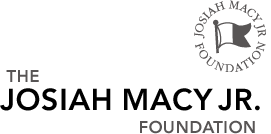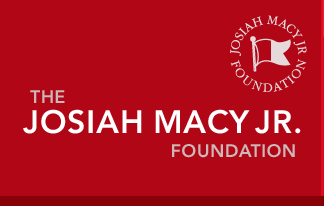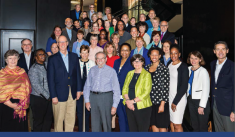Our Grantees
Across the Foundation’s priority areas, our grantees are working to improve the health of the public through innovative research and programs. The Foundation awards up to 40 grants on a rotating schedule each year.
A Fourth-Year Medical School Curriculum
Over the past several decades, the fourth year of medical school has become increasingly flexible to give students a “head start” in their chosen specialty. Often this flexibility has been expanded through the introduction of “audition electives” which permit senior students to opt for “elective clerkships” in their hoped-for field and improve their chances for being selected for choice residencies. Indeed, this trend to flexibility has become so extreme that in some institutions the fourth year is now entirely elective.
This grant to restructure the fourth year of the medical school curriculum at the University of California-Los Angeles (UCLA) School of Medicine intends, as its stated goal, “to recover the fourth year of medical school (in order to) better prepare medical students for the challenges of providing care and conducting research in the fastchanging world of health care.” Rather than start as a pilot program, the UCLA proposal includes all fourth year students and has been designed to serve as a national model.
A core group of faculty leaders, including not only Dr. Levey, provost and dean, but Dr. Alan Robinson, vice provost of medical sciences and executive associate dean, and Dr LuAnn Wilkerson, senior associate dean for medical education, has developed a five “colleges” program for fourth year students.
In this program students will belong to the “college” most closely suited to his or her anticipated career paths and will spent half of their time within the chosen college, with the remaining half available for electives. The five “colleges” are 1) primary care, including general internal medicine, pediatrics, family medicine, obstetrics/gynecology, and psychiatry; 2) acute care, including emergency medicine and intensive care; 3) applied anatomy, including surgical specialties, radiology, radiation oncology, pathology and related areas; 4) medical science, designed for students interested in academic careers in research and/or teaching; and 5) under-served communities.
The UCLA Medical School, which is particularly strong in primary care, has a long-standing partnership with the Drew Postgraduate Medical School in which Drew students receive a UCLA medical degree. The recent joint graduating class of 200 was polled to see what their interest in the different colleges would have been, had the option been available to them. The underserved communities college was selected primarily by Drew students who, in the past, have chosen to work in underserved communities. The survey further showed that twice as many of the other students, or 40 percent, were interested in primary care, with about 20 percent interested in each of the other three tracks. That distribution is consistent with the career and residency choices of UCLA M.D. graduates in recent years.
Each of the colleges offers a college-specific curriculum block of three to four weeks at the beginning of the fourth year. Students participate in a year-long advisor/mentor program and evening seminars related to the focus of the college, and also acquire experience in pertinent patient care or research, as well as required clinical core rotations and electives. In addition they have an opportunity to pursue individual projects.
During the first eight months of the grant, faculty leaders will participate in detailed planning and also help train other faculty to serve as mentors and teachers in the new colleges. The first of three classes of fourth-year medical students will enter in August of 2001. Each class will be evaluated and, if the model proves successful, dissemination to other schools will begin during the final year.
The Macy grant will support released time for faculty and provide for administrative support in each of the five colleges. It will be matched by UCLA.




 11.13.18
11.13.18